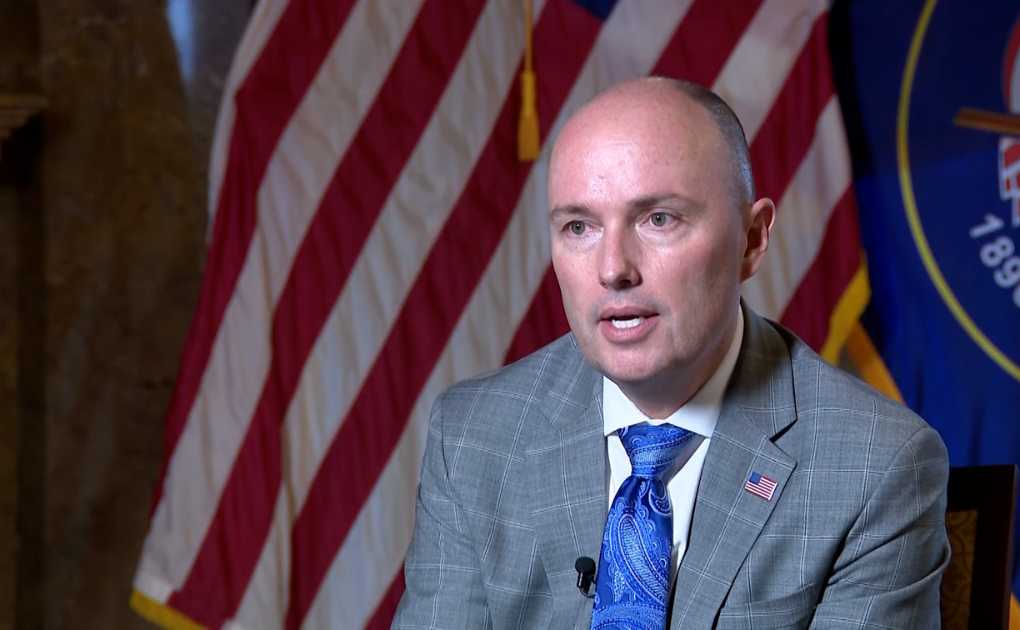
SALT LAKE CITY — Gov. Spencer Cox signed six bills Tuesday, including the transgender bathroom bill and the bill to replace diversity, equity and inclusion offices in Utah‘s public universities and colleges and state agencies.
He issued brief statements about both of the most controversial bills but did not offer any commentary on the others signed Tuesday. In total seven pieces of legislation have been signed into law during the 2024 session.
HB257
Regarding the bathroom bill, HB257, Cox said:
We want public facilities that are safe and accommodating for everyone and this bill increases privacy protections for all.
The bill includes a criminal trespass charge for individuals who go into a changing room or locker room that does not match their birth sex unless they first undergo gender-related surgery and change the sex on their birth certificate. In restrooms, an individual can be charged with enhanced penalties for voyeurism, lewdness or loitering if in a space that doesn’t correspond with their sex designation.
Equality Utah, the state’s largest LGBTQ organization, issued a statement last Friday afternoon thanking lawmakers for ensuring that children in schools would not face criminal charges, but the organization said it did not support the bill as a whole.
“These are issues we raised and asked legislators to amend. We are grateful for their responsiveness,” the organization stated. “We still hold the position that transgender Americans have the freedom and liberty to access facilities within public spaces. We are sorry for the fear and distress that many within the community are experiencing as they read these bills. We will continue meeting with lawmakers throughout the session to advocate on their behalf.”
BREAKING: Governor @SpencerJCox had signed two controversial bills into law, HB257 restricting bathroom access for transgender people in government buildings and HB261 eliminating DEI offices in higher Ed and schools.
Here are his statements on each: @KSL5TV pic.twitter.com/lDhEsS1dcm
— Lindsay Aerts (@LindsayOnAir) January 31, 2024
Proponents of the bill have said it is important to increase privacy for women in restrooms, but critics have said a policy should focus on behavior, not on the gender identity of a person.
HB261
Often called the DEI bill, HB261, prohibits any programs, office or training promoting differential treatment based on race, color, sexual orientation or any other identity characteristic.
It applies to higher education, public schools, the state board of education and government employers, such as cities or county health departments.
Cox said in a statement:
We’ve been concerned about some DEI programs and policies, particularly with hiring practices, and this bill offers a balanced solution. I’m grateful to the Legislature for not following the lead of other states that simply eliminated DEI funding with no alternative path for students who may be struggling. Instead, this funding will be repurposed to help all Utah students succeed regardless of their background.
We firmly believe that Utah is stronger because of our diversity and we remain committed to keeping our state a place where everyone can thrive. Over the past three years, our administration has worked very intentionally with many community stakeholders to expand opportunities for all Utahns and we will continue to do so.
The bill passed 58-14 along party lines last week.
Minority Leader Angela Romero, D-Salt Lake City, said she became a lawmaker because she was in the Center for Ethnic Student Affairs in college.
“I’m afraid that we’re erasing people, we’re erasing identities, we’re erasing experiences,” she said. “And I know people’s intent. And isn’t that I’m not saying anyone in this room is doing that on purpose. But I want to remind all my colleagues there’s unintentional consequences when we just try to sweep things and say we’re all the same because we’re not.”
Rep. Jennifer Dailey-Provost, D-Salt Lake City, took issue with health programs that could be impacted.
“Black and African American women face higher rates of infant mortality than the general population by a rate of 250%. Getting rid of programming like this eliminates what we’re actively doing to try to do to lessen those disparities,” she said.



